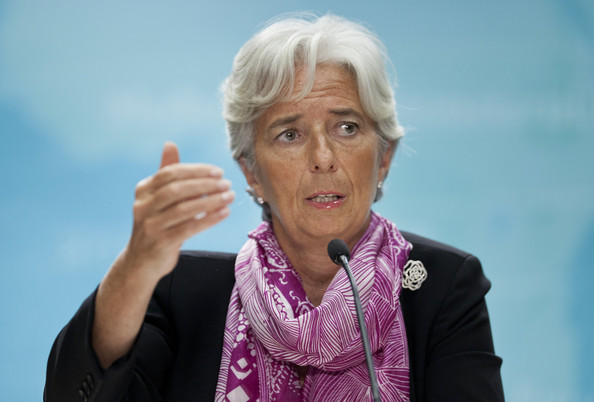
The IMF on Tuesday called on sub-Saharan Africa, one of the world’s fastest growing regions in recent years, to start adjusting policies in line with new economic realities of slowing growth.
The rate of expansion is forecast to drop from 5.0 percent in 2014 to 3.75 percent this year, the lowest since the region suffered from the impact of the global economic meltdown in 2009.
“Economic activity in sub-Saharan Africa has weakened markedly,” the International Monetary Fund said in a bi-annual report titled ‘Dealing with the Gathering Clouds’.
To counter the drag on growth the Fund urged the region to adopt realistic fiscal and monetary policies and address the high income and gender inequalities levels.
The policies could include allowing currency depreciation as a shock absorber, especially in commodity exporting economies, and “striking an appropriate balance between debt sustainability considerations, on the one hand, and addressing development needs, on the other”.
“Reducing inequality could deliver significant growth payoffs for the region.”
“Income inequality appears to be markedly higher at all levels of income in the region than elsewhere, with gender inequality being just one of the factors driving that result,” said the IMF.
The reasons for the economic slowdown included a sharp decline in commodity prices and tough financing conditions in several countries.
“The outlook for the region is clearly much less favourable than in the recent past,” the IMF report said, while predicting that economic activity will start “strengthening somewhat to 4.25 percent in 2016 on the back of the gradual pickup in global activity”.
Economies that had in previous years grown rapidly on the back of raw commodity exports, largely driven by demand from China, had been hardest hit by the fall in commodity prices.
“After a steady rise in prices since the early 2000s, the decade-long commodity cycle seems to have come to an end.
“This represents a formidable shock for many of the sub-Saharan African countries that are still substantial commodity exporters, as it cuts into export values and fiscal revenues.”
Reduced demand for commodities has jolted countries such as mineral-rich Angola, South Africa, Sierra Leone and Zambia.
Eight oil exporting countries that account for around half of the region’s GDP are particularly hard hit, with Nigeria expected to see its 2015 growth rate drop sharply to 4.0 percent from 6.3 percent last year.
South Africa, the region’s most advanced economy, will not grow more than 1.5 percent, due in part to irregular electricity supplies, declining commodity prices and job cuts.
However, countries such as Ivory Coast, Ethiopia and Mozambique are still expected to post growth rates of at least 7.0 percent this year and next.
The regional current account deficit is expected to widen to 5.7 percent from 4.7 percent in 2014, marking the largest deficit in more than three decades, the IMF said, warning that commodity prices “could still fall further”.












